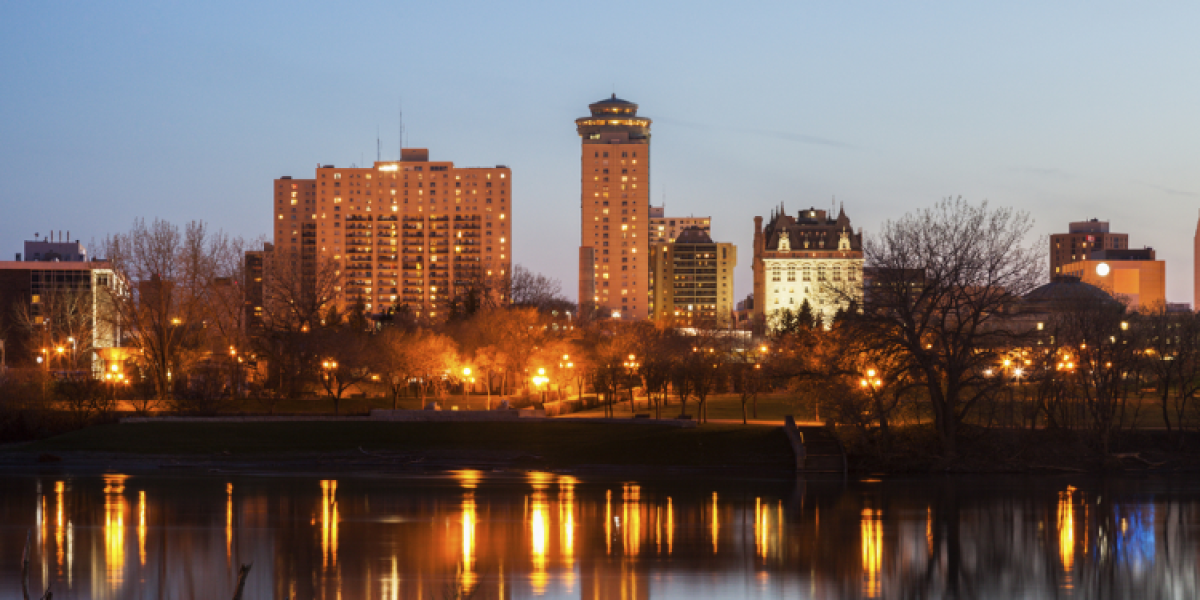
Since September 7, Canadian borders have been open. The country, which is very popular with expatriates, needs skilled labour. With its wide open spaces and amazing beauty, Canada is the world's second-largest country after Russia and continues to attract new immigrants. While many expats usually head to big provinces and cities such as Quebec or Vancouver, more and more of them are now choosing less popular provinces where they can get equal or even greater benefits.
What you need to know
Less popular provinces: A tactical option
Thanks to the federal Express Entry program, many immigrants were able to become residents in Canada (except for Quebec, which has its own immigration system). Some provinces are currently in demand for labour and have internal Express Entry programs that allow some immigrants to go through the paperwork even faster and thus speed up their settlement in the country.
Where Quebec is lagging back is the delay is in obtaining Permanent Residence (approximately two years via the Quebec Selection Certificate program). However, the province has been introducing more criteria for obtaining residency for people who have already settled there. Meanwhile, the rest of the country has been increasing immigration quotas and opening a new path within the Express Entry program to welcome more essential workers.
Immigrating to these provinces may thus be a tactical choice in obtaining Permanent Residence more rapidly, paving the way not only for statutory stability but also for freedom of employment, housing and many other benefits.
“I chose Winnipeg because my first experience had already taken me to Manitoba, and after visiting all the major Canadian cities, I realized that this place suited me best! Life is affordable, the unemployment rate is low, and there is a program that offers permanent residency without strict conditions. It's been four and a half years now since I live here, and I know it was the right choice! ”says Kenza, an expat in Winnipeg, Manitoba.
Immersion and expat solidarity
There are many perks to immigrating to one of the major cities in Canada (Montreal, Quebec, Toronto or Vancouver), but that does not necessarily mean that you will get to immerse yourself in the local culture. Living in Montreal is radically different from living in Vancouver. Yet, there are even greater differences when you choose a less popular province.
Marie, in Calgary, explains: “I moved to Alberta for its proximity to the mountains, because the city of Calgary doesn't feel like a big city. When I came to Canada, my aim was to be immersed in the English-speaking culture, and the Western part of the country seemed ideal for this. But there is also a large French-speaking community here."
Choosing to live in a less popular province also means being away from other expats and, thus, getting completely immersed in the culture, meeting people with different habits, etc. For non-English-speaking expats, this also means that you will get the chance to improve your language skills very quickly through contacts with locals who are often very benevolent about minor grammar errors.
Johanna lives in Summerside on Prince Edward Island, in the eastern part of the country. She says:“I have now lived on Prince Edward Island for four years after staying for one year in Newfoundland and Labrador. I chose to return to an Atlantic province because I really loved my experience there. I loved having that sense of belonging to a community that welcomes you and helps you integrate quickly when you are so far away from home."
This human touch is crucial for expatriates like Johanna, who left their family and friends to live a new adventure in Canada. Even though the choice of moving overseas was yours, feeling surrounded by a strong and united community helps make the transition smoother.
More opportunities and adventures
Going off the beaten track also means having to face obstacles that you usually would not experience in a large city. But in any case, it takes time to overcome the language barrier, for example, and get used to new customs and get your bearings.
However, solidarity among expatriates seems more remarkable and more powerful in these regions. "European expats tend to stick together in these less popular provinces. Since we are fewer in number, there is great mutual support and above all the same sense of adventure", says Johanna. So this might be one of the perks of relocating to such a province.
Marie, an expat in Calgary, explains that she chose this city because of the numerous employment opportunities, added to the affordable cost of living, and the incredible landscapes close to home. This balance between a reasonable cost of living and quality of life with outdoor activities is a luxury that you might find it hard to get in more densely populated and larger cities.
Regarding employment, Johanna emphasizes the importance this smaller community has had on her career. Upon arriving in Canada, she started a civic service job in 2015 at $ 800 / month. But she has been patient, professional and determined. Over time, she was awarded a fixed-term contract, then a permanent contract and finally, became the Executive Director of an organization in January 2020, five years after her arrival. “I couldn't have had such opportunities in my home country,” she says.
Instinctively, it is sometimes more comforting to head for a large city or known province, but that does not mean you cannot consider what other provinces have to offer, from job opportunities, cheaper housing, more affordable cost of living to quality of life with mountains or the sea close by. Each region is different, and this is what makes Canada such an interesting country to explore.



















